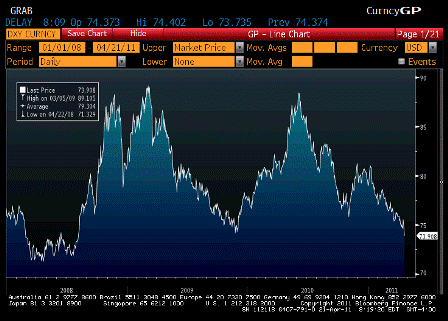With crude oil back up, the dollar has resumed it’s slide vs the other currencies. And odds are West Texas crude converges to Brent, which remains over $10 per barrel higher at about $124/barrel when/as the Cushing supply issues clear up.
However, with food and energy, at least for now, remaining a relative value story, this could largely be the other currencies deflating rather than the dollar inflating.
The US is a large importer of finished products and with relatively weak aggregate demand here this means downward price pressures on those who export to the US to sustain their export volumes and market share.
And with US unit labor costs not rising, US companies can price aggressively overseas and keep foreign margins under pressure as well.
So looks to me like the world shortage of aggregate demand/dangerously high unemployment will continue for a considerable period of time, now exacerbated by rising food and energy costs which takes purchasing power from high propensity to consume individuals and transfers it to low propensity to consume states, corporations, investment funds, etc.
While at the same time this (at least for the near future) relative value story gets treated like an inflation story by most of the world’s governments, who are consequently prone to take measures to further reduce aggregate demand.
No nation wins in this process, just some losing less than others.


